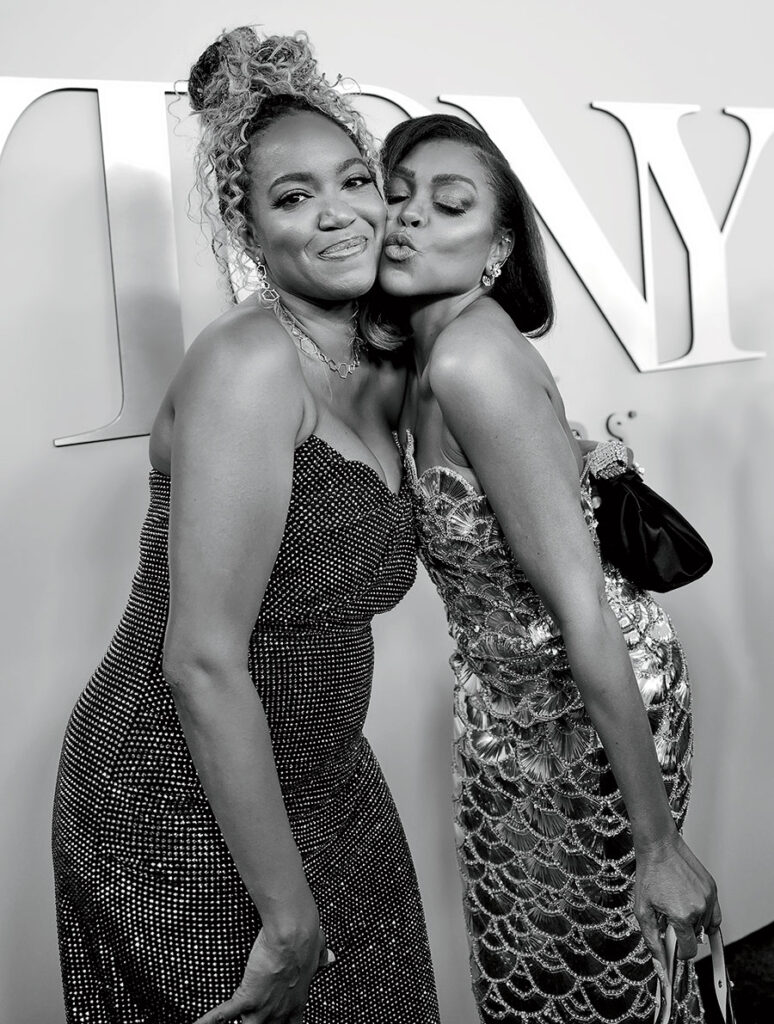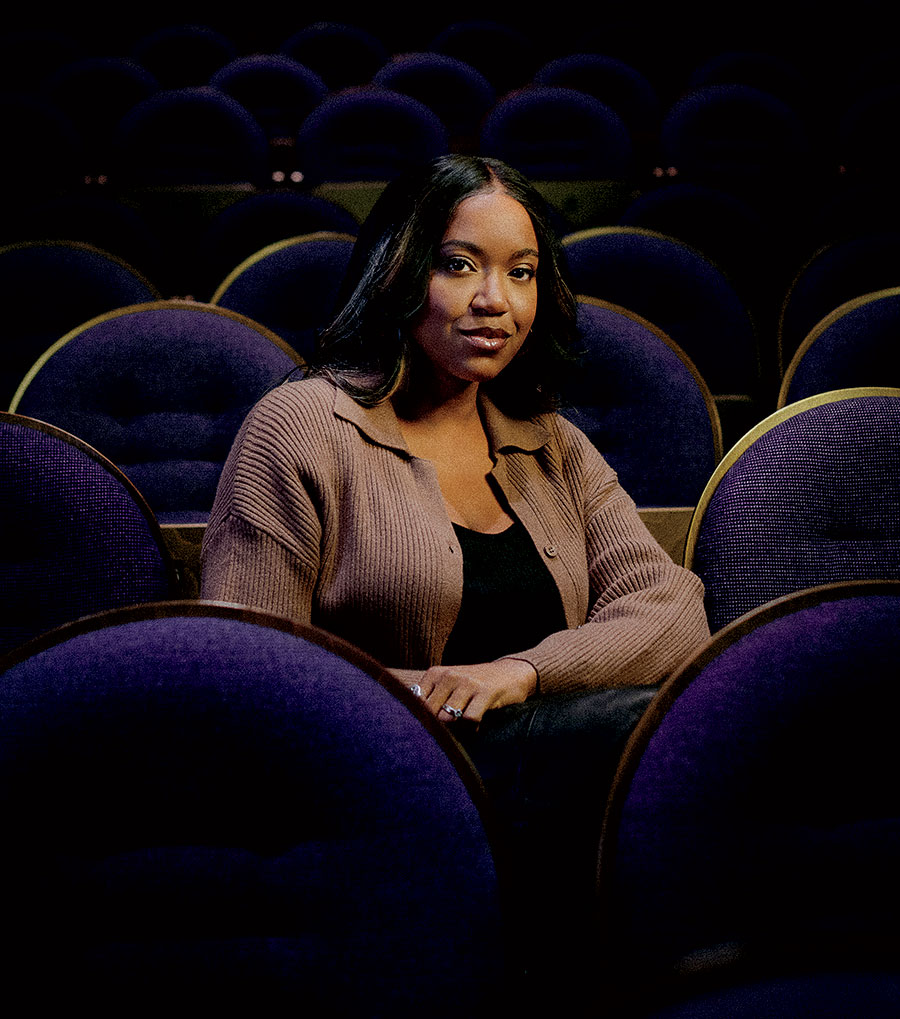Actors gushing “I’ve always wanted to direct” has become a cliché. But Whitney White’s arc has been different. Her ambitions for the stage were long focused on performing. It wasn’t until she was nearly 30 that she leaned into directing. What followed was a quick rise to the A list.
Less than a decade into a career on the other side of the footlights, the Chicago native scored a 2024 Tony nomination for her Broadway debut, Jaja’s African Hair Braiding. Now Chicago Shakespeare Theater remounts the slice-of-life comedy, opening a three-week run January 14. The cast will be new, but White returns, along with her Tony-winning design team. “I can’t say enough how important it is to me that this show is coming to Chicago Shakes,” she says. “It really feels like a homecoming. One of the first theater classes I ever took was with [CST artistic associate] Bob Mason.”
Though she now lives in Brooklyn, White, who was raised in Lake View (yes, she’s a Cubs fan), asserts she’s “Chicago through and through.” Her passion for culture took early root. At Our Lady of Mount Carmel Academy, she learned to read music and sing, and her grandfather took her to South Side church services boasting a “huge” choir and full band. By the time she graduated high school, she says, “I wanted to be an opera singer, if you can believe that.” She ended up at Northwestern studying musical theater and political science — an unconventional double major, but as she points out, “Everything involves politics.”
“We want to make something that’s undeniable — undeniably funny, undeniably moving.”
After scoring roles in her early 20s on the stages of the Goodman and the Court, White moved to New York City in 2012. She later pursued a master’s in acting at Brown, which unlocked an unexpected new door. “They make you take directing and writing your first year, and I’m grateful they do, because that’s when I was able to realize my talent as a director.”
A classics geek, White has long relished digging into works of the canon, but a dearth of diverse roles influenced her turn away from acting: “I dove headfirst into directing so that I could helm stories that made space for people who live in the world that I understand — not just one or two types of people.”
Her wide-ranging résumé includes directing works centering Black women, such as The Most Spectacularly Lamentable Trial of Miz Martha Washington at Steppenwolf in 2022 and, the following year, The Secret Life of Bees in London. This spring, she’ll bring The Last Five Years, the beloved two-hander musical, to Broadway with an interracial twist: She cast Tony winner Adrienne Warren with pop star Nick Jonas.

And of course, there’s Jaja’s, a laugh fest by Jocelyn Bioh set in a Harlem hair salon. The workplace-sitcom rhythms disguise the dramatic undercurrent involving the West African immigrant characters. “At every step of the way, we told ourselves we want to make something that’s undeniable — undeniably funny, undeniably moving,” White says. “I don’t want to give it away, but it’s a portrait of survival. We all have the tools to keep going on, even in challenging times, and we can do it with community.”
But don’t get it twisted: The show is hilarious. In preparation, White found herself studying beloved old sitcoms, from I Love Lucy to The Jeffersons and Cheers. “No matter who you are or where you’re from,” she says of Jaja’s, “you’re going to laugh, which is a magic trick in itself.”
Speaking of magic: “We’re really trying to give you the Broadway production,” she enthuses, getting louder as she recalls one of the show’s signature flourishes, which won wig designer Nikiya Mathis a special Tony. “The color. The costumes. The hair! The hair changes will feel like watching Harry Potter.”
But at the end of the day, the show, like its director, is as grounded as Weezy Jefferson. “I might sit here with my fancy master’s degree from Brown, but I’m not a snob,” White says. “Every Chicagoan has a seat in the shop.”



